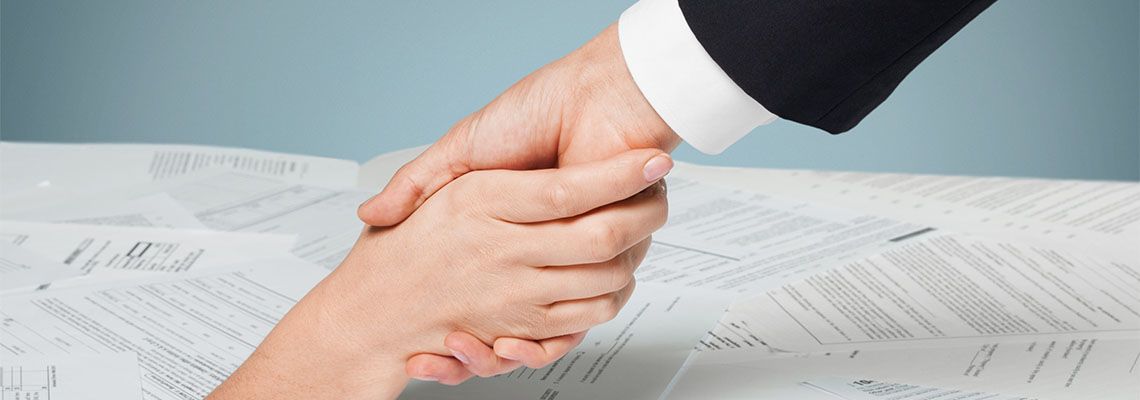
Repairing Your Credit After Filing for Bankruptcy
There’s nothing easy about dealing with debt problems, but by taking action now, you can start taking steps to rebuild your credit and create a brighter financial future. For many people, this means declaring bankruptcy. While this may seem like a drastic step, it’s often the best choice and can set you up for success in the future. However, it’s important to know how to rebuild your credit after bankruptcy so you don’t fall into the same bad habits that got you into debt in the first place.
If you’re interested in speaking with a bankruptcy attorney, contact The Law Office of Marc G. Alster to schedule a consultation. Mr. Alster is able to represent clients in Hackensack, New Jersey, and throughout Northern and Central New Jersey counties, including Bergen, Passaic, Hudson, Essex, and Union, as well as counties in New York such as Rockland, Westchester, Orange, and Putnam.
How Long Does a Bankruptcy Stay on Your Credit Report?
When thinking about how to rebuild credit after a bankruptcy declaration, it’s essential to understand how long it will stay on your credit report. Furthermore, the type of bankruptcy you file under will also influence how long it affects your credit score. If you’re unsure of what chapter of bankruptcy you should choose, meeting with an experienced lawyer can help you better understand your options:
Chapter 7 Bankruptcy: This is the most common type of bankruptcy for individuals and will typically stay on your credit report for 10 years. Chapter 7 is also referred to as “liquidation bankruptcy” because it requires you to liquidate (sell off) any non-exempt assets and use these proceeds to pay off creditors before the declaration will go through. That said, the vast majority of filers will not have any assets that fall into this category, making it an ideal choice for those who have low to moderate income and few assets.
Chapter 13 Bankruptcy: Chapter 13 is the other option for individuals, and this will stay on your credit report for seven years. Chapter 13 is a good choice for those who have assets they want to protect since it allows them to set up a repayment plan with their creditors that they must stick with for three to five years before any remaining debts will be wiped out.
Does That Mean I Can’t Do Anything Requiring Credit for 7-10 Years?
This is one of the most common questions we get, and in most cases, the answer is no, but your specific circumstances will affect what you are and aren’t able to do after declaring. For example, it’s sometimes possible to purchase a home one to two years after a Chapter 13 case (or two to four years after Chapter 7), to purchase a car within six months of filing Chapter 13, or buy a car on discharge of a Chapter 7 (typically four months from filing of a case).
However, even if you are limited in your ability to purchase a new car or home, there are other steps you can take in the meantime that will positively affect your credit score in the long run.
What Steps Can I Take to Rebuild Credit?
It is possible to rebuild your credit while your bankruptcy still appears on your credit report, and by following these easy steps, you can begin taking control of your finances:
Double check your credit report: Any time something major happens to your credit (like filing for bankruptcy), you should request a credit report to make sure everything was recorded correctly. This is especially important after a Chapter 7 filing has gone through or at the end of your repayment plan under Chapter 13.
Take out a credit-builder loan: These loans are specifically designed to help people rebuild their credit and can be a good first step to slowly increasing your credit score. They work by lending you a small amount (typically no more than $1,000) which is placed into a savings account that earns interest while you pay it back.
Get a secured credit card: Like a credit-builder loan, a secured credit card is an excellent option for relearning responsible credit skills. These cards require you to deposit a set amount into an account which you can then draw from like a credit card to make purchases.
Consider opening a traditional credit card: This is a step that should only be taken a few years after declaring bankruptcy. You won’t have many options, and the ones you do have will undoubtedly come with high interest rates. Even so, opening a credit card, using it sparingly, and paying it off immediately can make a huge impact on your credit rating.
Make Informed Decisions
If you’re concerned about declaring bankruptcy or have recently filed and now want to learn more about your options for repairing your credit, reach out to The Law Office of Marc G. Alster in Hackensack, New Jersey.
